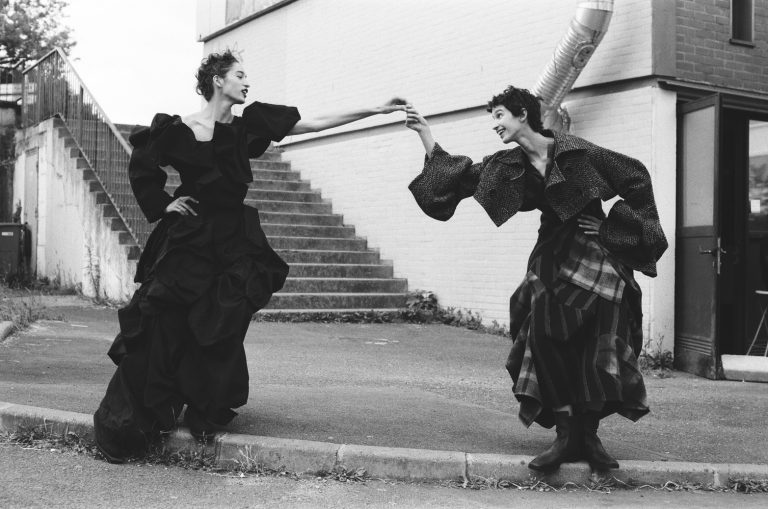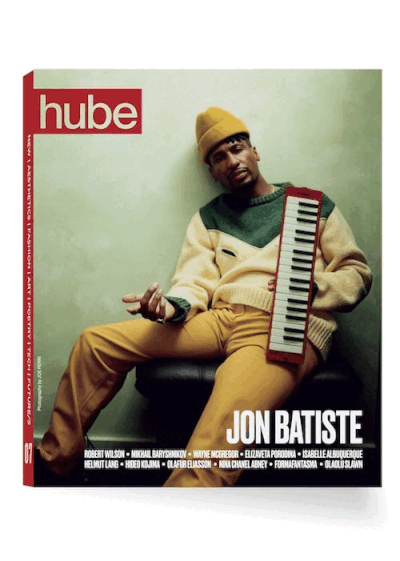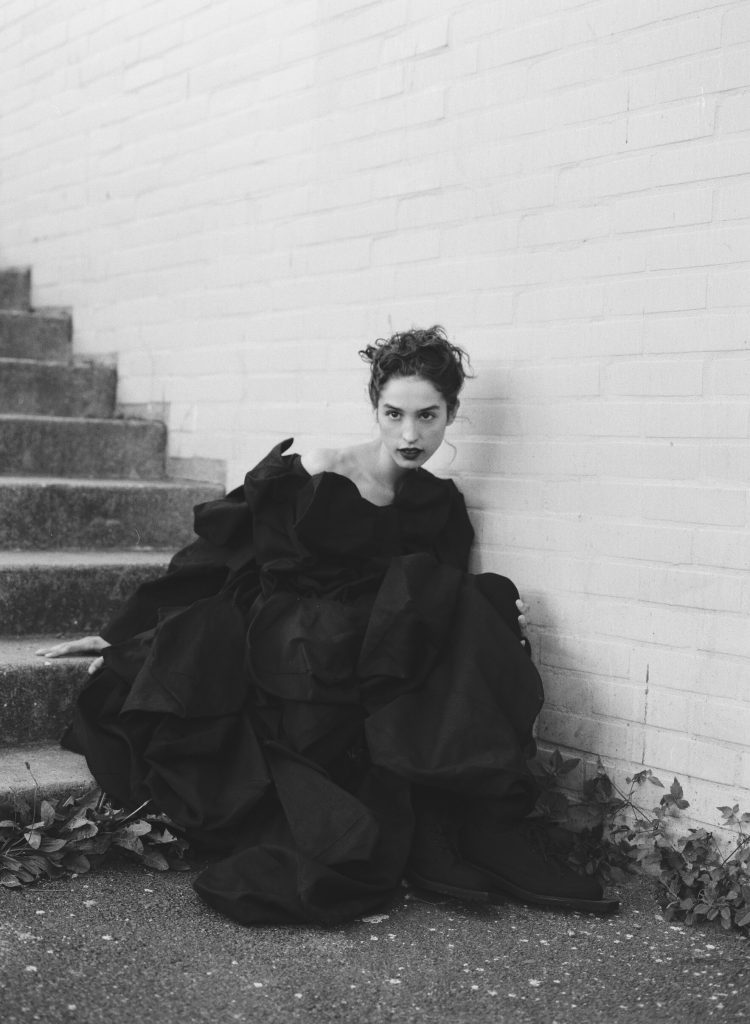
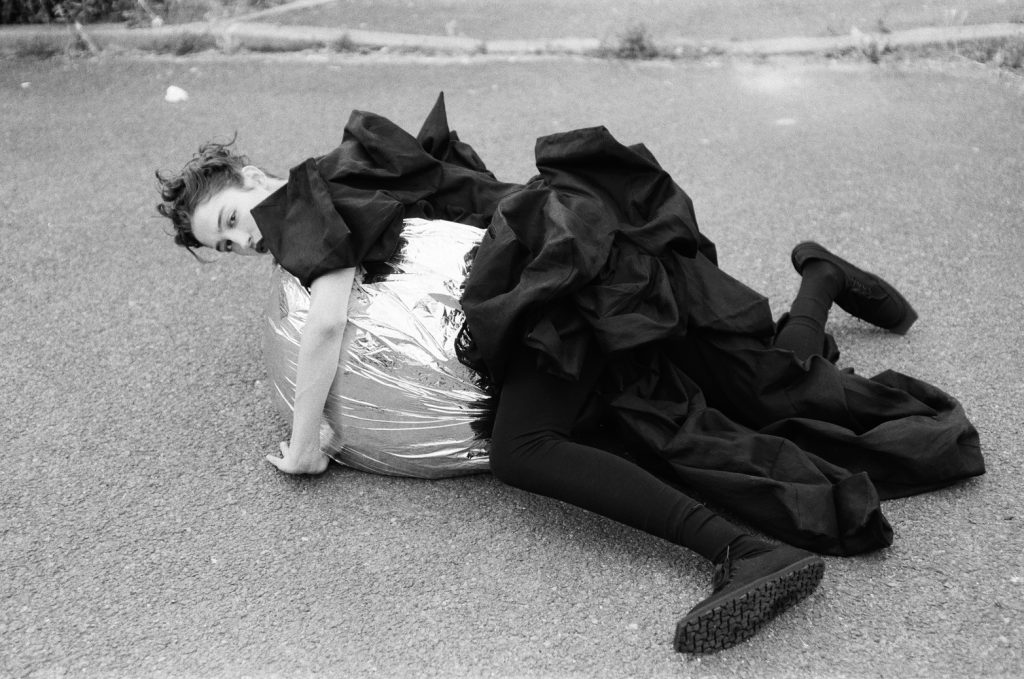
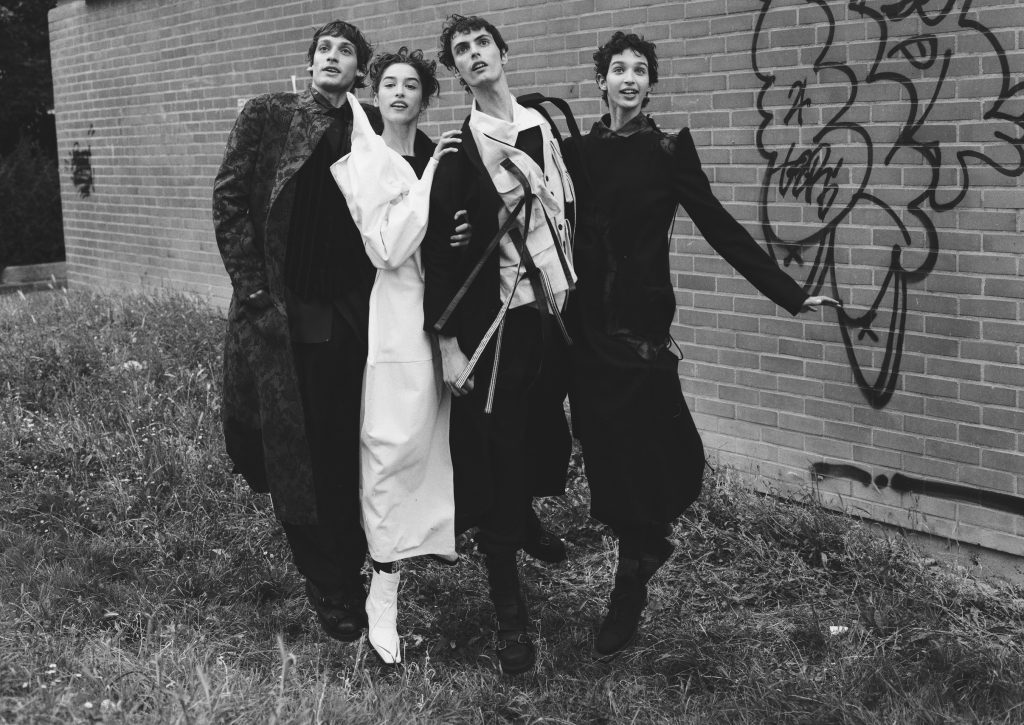
One of my favorite scenes from Wim Wenders’ seminal film Notebook on Cities and Clothes features Yohji Yamamoto creating the sign for his new store. The designer used to do this because the Yohji Yamamoto logo is essentially his signature. In this scene, he signs his name, assesses his work, feels somewhat dissatisfied, erases it, re-signs, and repeats this process about five times. Was he satisfied with the final version? I don’t believe so. I also don’t believe I’m alone in viewing Yamamoto’s aesthetics as pure perfection, even if he himself might disagree. If the ideal is unattainable, how else could you describe Pina Bausch dancing in a black dress designed by Yohji-san? Or a poem that captivates your mind in just two lines? This black-and-white story, captured by Fausto Elizalde and styled by Gabriella Norberg, somehow reminded me of that dance. Have we achieved perfection in this feature? I doubt it. But we definitely had poetry in our minds when we worked on it.
Sasha Kovaleva
hube: Which words would you use to start a conversation about beauty?
Yohji Yamamoto: Well, beauty is always related to women. For me, I never saw beauty in men. But it also depends on the period of my life, right now it is strongly related to nature and to danger. Like beauty, danger is always attractive.
h: Your work often finds itself in museum spaces, where it is studied and interpreted within the context of art history. Do you find it interesting to observe this process?
YY: I don’t really like it, because clothes always contribute to the wearer’s style, proportions, and movement. I feel that when my clothes are not being worn by someone, they seem to lose their essence.
h: Poetry provides the reader with the freedom to interpret its symbols, images, and rhythms, turning it into a deeply emotional and personal experience, almost as if making the reader co-author. What is your relationship with poetry? Do you see any connection between poetry and your work?
YY: I like to read poetry. When I read strong poetry, I feel very small. For a long time, until recently, I didn’t even try to compare my work to poetry. I have always had the feeling that poetry is very strong, because it includes so many different feelings and meanings, it’s a very powerful medium. Poetry does not explain. We have to imagine and make our imagination work. Each one of us can interpret it differently; we are free to interpret it. Only poetry can do that.
I think everybody has poetry in their minds.
